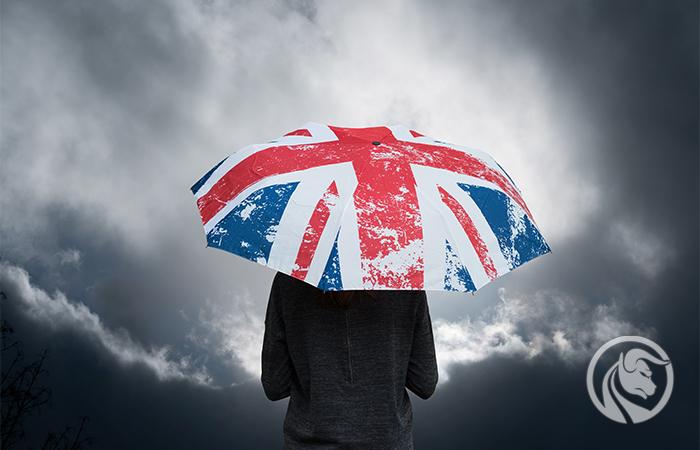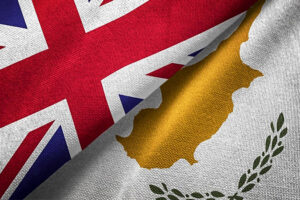Brexit status: Swamps of Despair
However, the lords, including members of the Conservative Party, rejected the illegal Brexit bill by Boris Johnson. The Act exacerbated the London-Brussels conflict as it was alleged to invalidate the State Aid and Customs Control Agreement required for goods crossing the Irish Sea. The majority of the lords - 226 votes - were against the bill, representing the Conservative party's biggest defeat in over 20 years. At the same time, it is still very unclear how further negotiations will go. Negotiators from both sides - Frost and Barnier - are discussing on Twitter, but it is not known at this stage whether negotiations will resume in the coming days.
About the Author
 Christopher Dembik - French economist of Polish origin. Is a global head of macroeconomic research at a Danish investment bank Saxo Bank (a subsidiary of the Chinese company Geely serving 860 HNW customers around the world). He is also an advisor to French parliamentarians and a member of the Polish think tank CASE, which took first place in the economic think tank in Central and Eastern Europe according to a report Global Go to Think Tank Index. As a global head of macroeconomic research, he supports branches, providing analysis of global monetary policy and macroeconomic developments to institutional and HNW clients in Europe and MENA. He is a regular commentator in international media (CNBC, Reuters, FT, BFM TV, France 2, etc.) and a speaker at international events (COP22, MENA Investment Congress, Paris Global Conference, etc.).
Christopher Dembik - French economist of Polish origin. Is a global head of macroeconomic research at a Danish investment bank Saxo Bank (a subsidiary of the Chinese company Geely serving 860 HNW customers around the world). He is also an advisor to French parliamentarians and a member of the Polish think tank CASE, which took first place in the economic think tank in Central and Eastern Europe according to a report Global Go to Think Tank Index. As a global head of macroeconomic research, he supports branches, providing analysis of global monetary policy and macroeconomic developments to institutional and HNW clients in Europe and MENA. He is a regular commentator in international media (CNBC, Reuters, FT, BFM TV, France 2, etc.) and a speaker at international events (COP22, MENA Investment Congress, Paris Global Conference, etc.).
Reaching an agreement by mid-November will require a breakthrough on four main issues:
1. The UK will have to make its position more clearly on the enforcement of the principle of equal opportunities. The EU is particularly concerned about state aid and the implementation of authoritative mechanisms for control and enforcement of grant decisions. Negotiators generally consider two options: national regulation or the dispute settlement procedure.
2. London will have to agree to delete the most controversial provisions relating to the common market of England, Scotland, Wales and Northern Ireland after Brexit from the draft act on the internal market. The law ensures that trade between all four countries will not face any barriers, but the EU is concerned about potential implications for Northern Ireland, bordering the Republic of Ireland - an EU member state.
3. The EU, and France in particular, will have to make concessions on fisheries by admitting that it would be unfair to apply the same quotas in a situation where the long-coastal UK is no longer a Member State. The topic has long been a frustration in both Paris and London. To tackle this problem, the EU has offered concessions on the UK's future access to the EU energy market in exchange for fish, but the UK government is not satisfied with this.
4. We are not talking about a 20 or 30 page trade agreement. We are talking about a completely new treatise, at least several hundred pages long. It will take time for the legal analysis of the new agreement and its translation into other languages before starting the ratification process. It is not impossible to finalize the agreement, but it does require speed and goodwill on both sides, and perhaps also some political intervention.
The future of Great Britain
Despite recent reports on Brexit, we still expect a "weak" deal at the last minute. The British government recently mentioned the possibility of an "Australian" type agreement, but that would mean de facto no agreement. From an economic point of view, that would definitely not be the best option.
Despite certainty about the future of the negotiations, we cannot exclude the possibility that the UK and the EU may not reach an agreement before the end of the transition period. This would not necessarily mean a catastrophe, and perhaps even bring the unquestionable benefit of introducing an element of realism into the negotiations. A few months of Brexit without a deal could ultimately push both sides to a settlement to reach an agreement, as not only the UK but also Germany, France, the Netherlands and Ireland (the four Member States most exposed to the negative effects of Brexit) would experience the real economic cost of not having a deal. agreements.
In order to minimize the economic impact of no deal, it can be assumed that the Union would offer financial assistance to the above-mentioned four Member States and the United Kingdom would use further monetary policy measures (such as negative rates or even greater quantitative easing), but also a new policy to protect consumers' purchasing power (e.g. consumer vouchers or VAT cut); and liquidity measures for businesses. Ultimately, we believe that the FX market is right - there will be an agreement.






















![Forex Club – Tax 9 – Settle tax on a foreign broker [Download the Application] Forex Club - Tax 9](https://forexclub.pl/wp-content/uploads/2024/02/Forex-Club-Podatek-9-184x120.jpg?v=1709046278)
![Trading View platform – solutions tailored to the needs of traders [Review] trading view review](https://forexclub.pl/wp-content/uploads/2024/03/trading-view-recenzja-184x120.jpg?v=1709558918)
![How to connect your FP Markets account to the Trading View platform [Guide] fp markets trading view](https://forexclub.pl/wp-content/uploads/2024/02/fp-markets-trading-view-184x120.jpg?v=1708677291)
![How to invest in ChatGPT and AI? Stocks and ETFs [Guide] how to invest in chatgpt and artificial intelligence](https://forexclub.pl/wp-content/uploads/2023/02/jak-inwestowac-w-chatgpt-i-sztuczna-inteligencje-184x120.jpg?v=1676364263)


![WeWork – the anatomy of the collapse of a company valued at $47 billion [WeWork, part II] wework bankruptcy story](https://forexclub.pl/wp-content/uploads/2024/04/wework-bankructwo-historia-184x120.jpg?v=1711729561)
![Adam Neumann – the man who screwed up Softbank [WeWork, part AND] adam neumann wework](https://forexclub.pl/wp-content/uploads/2024/04/adam-neumann-wework-184x120.jpg?v=1711728724)





![How to transfer shares to another brokerage office [Procedure description] how to transfer shares to another brokerage house](https://forexclub.pl/wp-content/uploads/2024/03/jak-przeniesc-akcje-do-innego-biura-maklerskiego-184x120.jpg?v=1709556924)

![The most common mistakes of a beginner trader - Mr Yogi [VIDEO] Scalping - The most common mistakes of a beginner trader - VIDEO](https://forexclub.pl/wp-content/uploads/2024/03/Scalping-Najczestsze-bledy-poczatkujacego-tradera-VIDEO-184x120.jpg?v=1711601376)
![Learning patience: No position is also a position - Mr Yogi [VIDEO] Scalping - Learning patience - No position is also a position - VIDEO](https://forexclub.pl/wp-content/uploads/2024/03/Scalping-Nauka-cierpliwosci-Brak-pozycji-to-tez-pozycja-VIDEO-184x120.jpg?v=1710999249)
![When to exit a position and how to minimize losses - Mr Yogi [VIDEO] Scalping - When to exit a position and how to minimize losses - VIDEO](https://forexclub.pl/wp-content/uploads/2024/03/Scalping-Kiedy-wyjsc-z-pozycji-i-jak-minimalizowac-straty-VIDEO-184x120.jpg?v=1710336731)


















